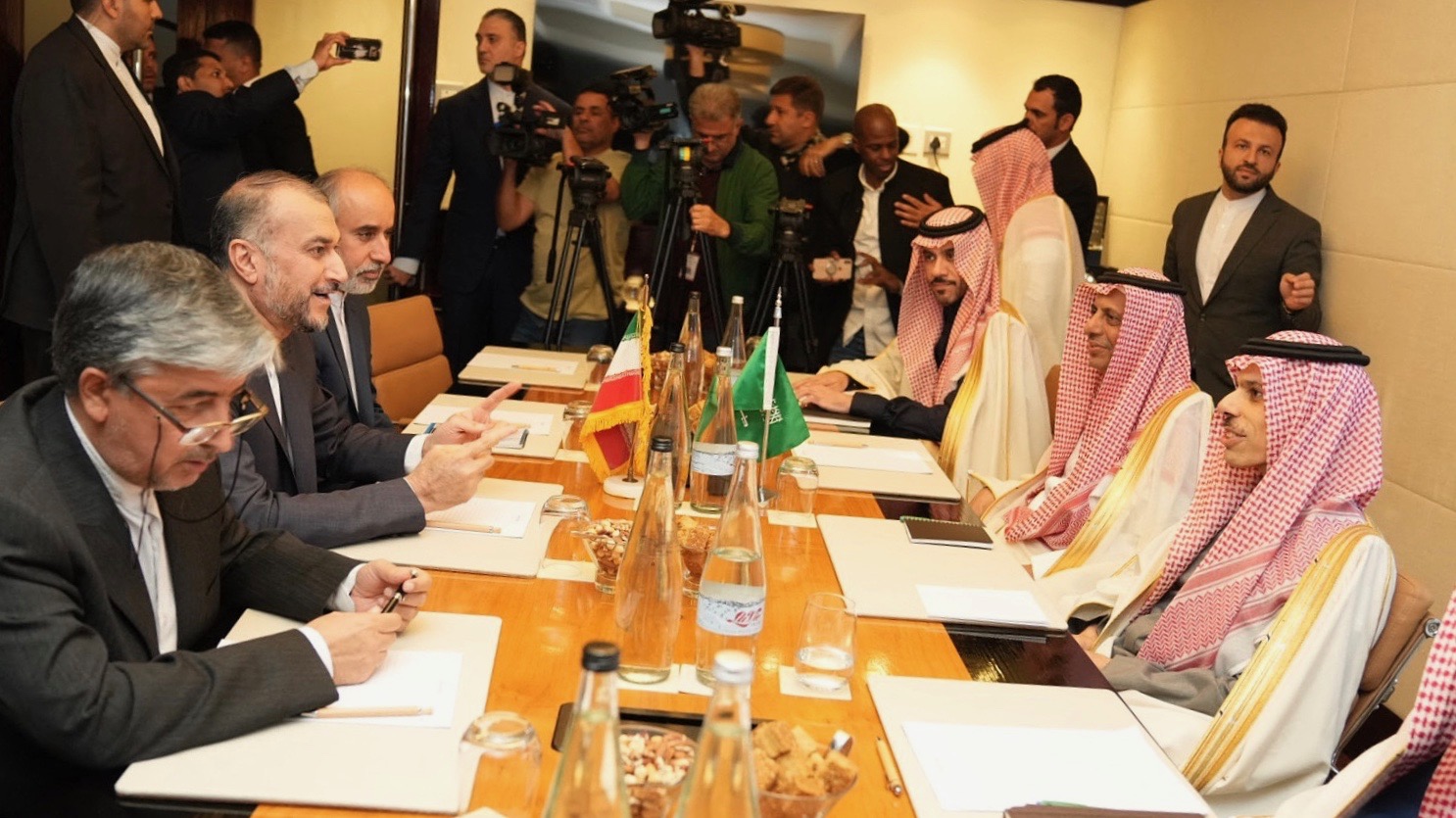In a fresh development that can have significant impact on the US presence in the West Asian region, Iran recently announced that countries in the Persian Gulf are about to form a regional naval alliance to ensure their collective maritime security.
The proposal, if executed, would be one of the most important regional security initiatives after the China-mediated rapprochement between Saudi Arabia and Iran in March this year. According to the reports, China may have an important role to play in the proposed maritime alliance.
Iran’s Navy commander Rear Admiral Shahram Irani claimed on Saturday that the alliance will include Saudi Arabia, United Arab Emirates (UAE), Qatar, Bahrain, and Iraq. Irani further claimed that the alliance will also include India and Pakistan, countries which are located around the northern Indian ocean.
Irani’s claims followed a report a day earlier which had stated that Iran, Saudi Arabia, the UAE and Oman are about to announce a “joint naval force” under the guardianship of China soon.
Responding to Irani’s claims, Chinese Foreign Ministry spokesperson Wang Wenbin said in a press conference on Monday that “upholding the peace and stability of the Gulf region in the Middle East bears on the wellbeing of countries and people in the region and is of vital importance to safeguarding world peace, boosting global economic growth and keeping energy supply stable.”
The idea of a regional naval alliance in the Persian Gulf was also welcomed by China’s leading regional experts. Wang Jin, assistant director of the Institute of Middle East Studies at Northwest University of China, said that “it is of great significance to neighboring countries and the international community to ensure maritime safety in the Gulf region through joint coordination,” CGTN reported.
Counter to US hegemonic presence in the region
Iranian Press Tv claimed that the move to announce the regional naval alliance is an attempt to counter the US and Israeli proposals to establish a Middle East NATO that were floated last year.
The idea of a regional maritime security alliance also received a boost recently with one of the US’ closest allies in the region, the UAE announcing its withdrawal from the Combined Maritime Force (CMF) on May 31.
UAE’s Foreign Ministry statement claimed that the decision to withdraw from the Bahrain-based 38-nation alliance was based on “an ongoing evaluation of effective security cooperation with all partners.”
The US has insisted that the UAE is still a partner in the CMF. It reacted to the news of the Iranian initiative by saying that the country is threatening maritime security in the Persian Gulf by “attacking or seizing” at least 15 internationally flagged vessels in the region in the past two years alone.
Iran has claimed that those vessels were either involved in illegal trade or were attempting to attack the Iranian navy patrolling the strategic waters.
The US is worried that the proposed alliance will have a severe negative impact on its presence in the region. The US has maintained its hegemonic presence in the region due to its significance as the route through which one-sixth of the global oil trade takes place. The US Navy’s fifth fleet is headquartered in Bahrain. US’ military presence in the region has been opposed by Iranians and several popular movements.





